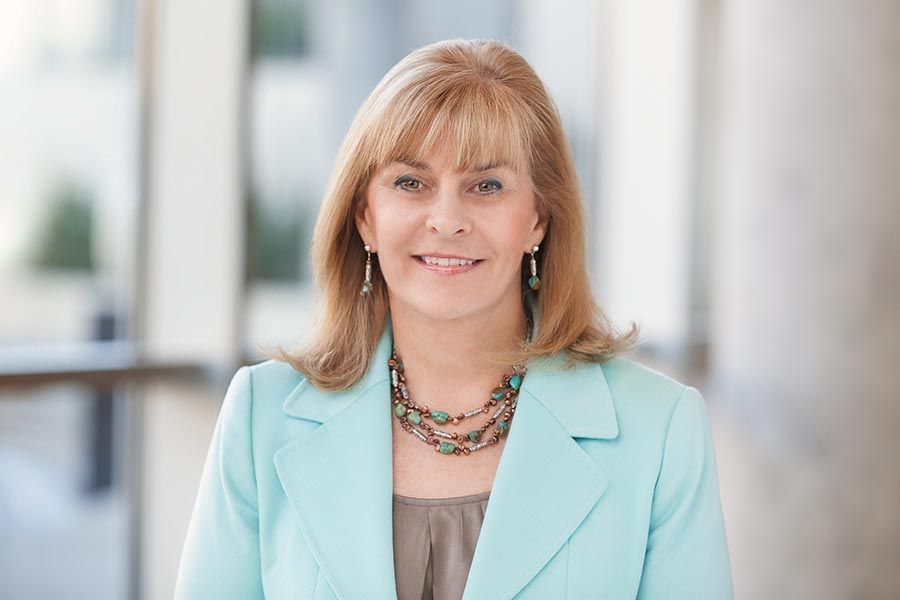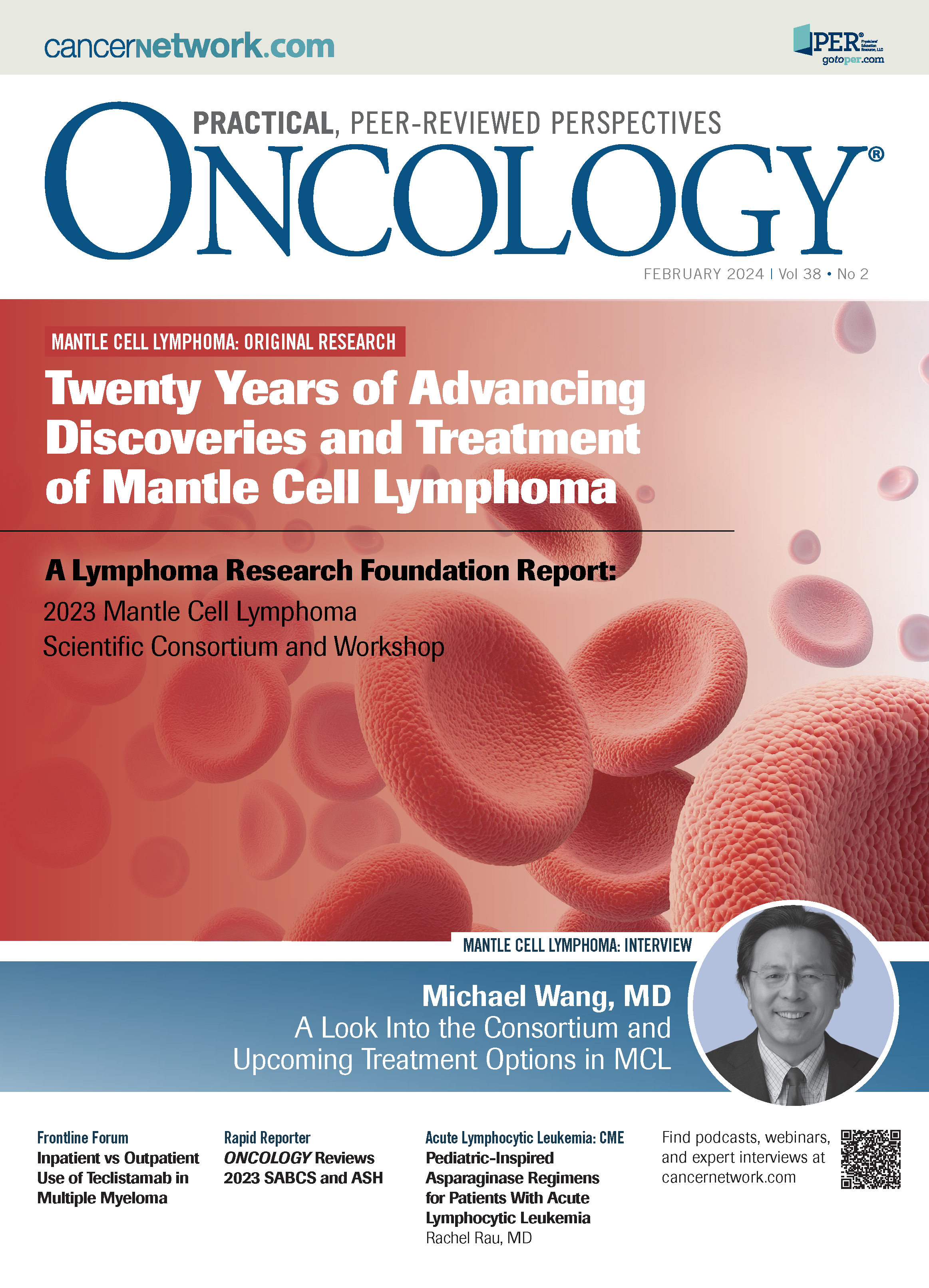Building on Recent Advances and Facing New Challenges in MCL
Julie M. Vose, MD, MBA, discussed the use of collaboration in driving progress in mantle cell lymphoma research and bridging the gap between research and clinical care.
Julie M. Vose, MD, MBA, discussed the use of collaboration in driving progress in mantle cell lymphoma research and bridging the gap between research and clinical care.

In a recent interview with CancerNetwork, Julie M. Vose, MD, MBA, spoke about the importance of collaboration in advancing research for mantle cell lymphoma (MCL). She highlighted the role of the MCL Consortium and Scientific Workshop, hosted by the Lymphoma Research Foundation, which included a group of researchers and clinicians dedicated to sharing knowledge and accelerating progress in MCL treatment.
Vose, Neumann M. and Mildred E. Harris Professor, Division Chief, Division of Hematology and Oncology at the University of Nebraska Medical Center, and coeditor in chief of ONCOLOGY, emphasized the unique challenges posed by MCL, including its rarity and the heterogeneity of the disease. She stressed the need for collaborative efforts to bring together researchers from different disciplines and clinical trial networks to share data, develop new treatment strategies, and improve outcomes for patients.
She also focused on the ongoing research efforts focused on personalized medicine, aiming to tailor treatment approaches based on individual patient characteristics and genetic mutations.
Can you discuss the rationale for putting this consortium together?
Vose: This consortium has been going on for a number of years, now sponsored by the Lymphoma Research Foundation, and brings together researchers specifically in mantle cell lymphoma [MCL], which is a rare type of lymphoma and we don’t have a lot of great treatments. [This consortium] brings scientists as well as physicians together to try to brainstorm new ideas and new clinical trials, to collaborate and work together on research for MCL to improve the outcome for patients, and to develop new therapies. Over the years, this has been helpful because there’s researchers from around the world [who] have attended and collaborated, there have been publications out of each of the consortiums, and [it] has been helpful to the field...to work together to improve the outcomes for patients with MCL. We want to continue to do that and to improve our treatments for patients with this rare lymphoma.
What topic do you think was most prevalent?
Vose: There’s a number of topics discussed; the first day is more focused on basic research, and the second day is more on clinical research. The things that are an important part of this consortium [are] to bring the basic and clinical scientists together, to try to come up with new therapies and translate that from basic research into clinical trials into treatments for patients eventually. That’s how a lot of the new treatments that we have for MCL and other types of lymphomas have come about in this collaboration. This is a type of symposium that...we should [have] for other types of diseases as well as to bring researchers and clinical scientists together to collaborate and improve outcomes for patients and to develop new therapies. That’s the [goal] of this consortium: to try to improve outcomes for these specific types of patients.
During the meeting’s conclusion, there was a discussion about lack of diversity in clinical trial populations. Can you expand on why this is important to talk about?
Vose: A lot of our therapies and clinical trials are tested on patients [who] are perhaps able to come to the large academic centers. They have insurance, they have the means to be able to participate in these types of trials, whereas the patient population that has a disease is not always [represented] in the clinical trials. That’s why it’s important to be able to have a diversity of patients in clinical trials: to test these new therapies because [patients] may have other medical conditions that would change the outcome of trials and not be necessarily representative of the entire patient population with that disease. It’s important to try to advance the treatment of a very diverse patient population through these clinical trial mechanisms.
Where should future research efforts lie in the MCL field?
Vose: We have had several new therapies for MCL over the last several years. That’s exciting. A lot of the patients with MCL are older patients with a lot of other comorbidities and other medical issues. Some of these more aggressive treatments don’t necessarily apply to those patients. We need to focus on therapies for patients with MCL that are able to be administered across a lot of different patient populations. This way we don’t have to be so concerned about some of their other medical illnesses. A lot of these patients have, for example, cardiac disease, pulmonary disease, or other medical issues that make some of our treatments not as applicable to them. Trying to discover new therapies that have decreased [adverse] effects and are completely applicable among a lot of different patient populations is important.
Are you excited to see any trials read out in 2024?
Vose: For MCL, there are new trials where we’re looking at some of these new therapies, particularly in combinations. We’re always looking at new therapies to try to improve the outcomes for these patients. A lot of the big trials have recently been read out, and that’s why we have a lot of these new therapies available. Combining these therapies that are FDA-approved for MCL or adding additional new therapies is something that we’re looking forward to in the future.
